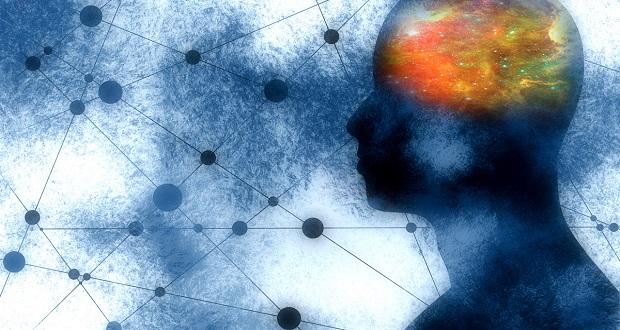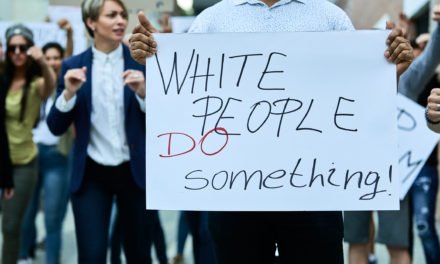
Trauma is defined by The American Psychological Association as “an emotional response to a terrible event like an accident, rape or natural disaster.” The APA describes the impact like this: “Immediately after the event, shock and denial are typical. Longer term reactions include unpredictable emotions, flashbacks, strained relationships and even physical symptoms like headaches or nausea. While these feelings are normal, some people have difficulty moving on with their lives.”
Most of us are familiar with the term post-traumatic stress disorder. It is usually a condition associated with military combat veterans. The US Department of Veteran Affairs defines Post-Traumatic Stress disorder (PTSD) as “a mental health problem that some people develop after experiencing or witnessing a life-threatening event, like combat, a natural disaster, a car accident, or sexual assault.”
Identity based trauma has not been as widely researched or talked about, but it is just as real as other traumas that people may face today according to Nnamdi Pole, Ph.D., professor of Clinical Psychology at Smith College. He contends that the psychological impact of racial injustices, for example, can lead to PSTD. He says that the repeated images of black people being assaulted by police can cause trauma for young black men in particular and all black people in general, even when they have not personally experienced the event. Just knowing that you belong to an identity group where there may be potential harm increases the chances of trauma.
Identity-based trauma is also more likely to manifest as pre-traumatic stress syndrome, which refers to the anticipation and fear that come with knowing that you might be targeted just because of who you are: “The symptoms are similar to post-traumatic stress disorder (including grief, sadness, worry, disturbing intrusive thoughts, sleep troubles and nightmares, and avoiding situations or activities that are reminiscent of the stressful event), but in this case, they stem from anticipatory anxiety about an event that may occur in the future.”
Social scientists have also coined the term historical trauma (HT) to refer to the multigenerational, communal trauma that oppressed and marginalized groups have faced. For example, when black people see the brutal attacks in the current media, it is reminiscent of a long history of brutality (e.g. lynching) towards black people in this country. This exacerbates the trauma.
In the current socio-political climate, there are a number of identities that are under attack, and I think we need to pay more attention to the potential long-term impact of identity-based trauma. Consider these examples that can potentially be traumatic in addition to African American trauma:
- A Muslim woman in a hijab may fear that her identity puts her in harm’s way.
- A survivor of a mass school shooting who is now traumatized by the event.
- A Latino who fears that they will be stopped by the INS and ask for their “papers”.
- A child in fear of being separated from their parents and vice versa
- A person from a country affected by the travel ban.
- A transgender person who fears they may be physically attacked.
- A woman who fears speaking out against sexual harassment.
- A man who fears he will be wrongly accused of sexual harassment.
- Native Americans’ historical and present- day trauma (e.g. racist names for sports teams, stealing land)
There is also a theory that it is not only the victims of identity-based violence who experience trauma but also the perpetuators. Mark Charles, a Native American (Navajo) pastor and activist, contends that white people who have perpetrated injustices against people of color over generations also experience trauma, not as victims but as perpetrators. Perpetration Induced Traumatic Stress (PITS), a term coined by peace psychologist Rachel MacNair, describes incidents of PTSD resulting from the trauma of having committed violence, as contrasted with trauma caused by witnessing or being the recipient of a violent act. Charles says that a nation built on 500 years of perpetuating injustices must also be experiencing historical trauma. He quotes Socrates: “The doer of injustice is more miserable than the sufferer. “
Charles believes that PITS plays out as shock and denial, as can PSTD. Therefore, white America is so overwhelmed by its history of injustice that it has gone into deep denial. According to Charles, “the myth of American exceptionalism has become a coping mechanism for a nation in deep denial of its genocidal past and current racist reality.” He cites examples of denial such as the lobbying in Texas and Oklahoma for only teaching “patriotic” history by taking references of slavery out of text books and the reaction to 8 years of a black president with the election of the likes of Donald Trump.
The psychological ramifications of the trauma that people of color face as victims and that white people face as perpetrators is real, and we need to pay more attention to how it is proliferating. When I first heard about PITS, I must admit that I was appalled that anybody could put it in the same category as the identity-based trauma that historically marginalized groups have experienced. After all, perpetrators have a choice. Victims do not. After some reflection, I came to terms with the notion that PITS is a mental disorder too, and perhaps we need to start treating it as one.
Shock and denial are usually the immediate responses to trauma. If Charles’ assertions are correct, white America as a collective (I realize that this does not characterize all white people) has not progressed beyond these feelings. I believe that you first have to acknowledge that there is something wrong. Without the acknowledgement, you may think what you are doing is normal and right, and there is no need for intervention or change.
Some countries have acknowledged the profound trauma past injustices cause with the establishment of truth and reconciliation commissions. Truth commissions strive to rewrite a nation’s history to accurately describe events and provide citizens an understanding of how violence took place and who was responsible for human rights violations. Dozens of countries have engaged in truth and reconciliation work including Canada, to acknowledge the wrongs done to Aboriginal people, and South Africa after apartheid.
There are very good “truth-telling” efforts scattered around the U.S. such as the Black Women’s Truth and Reconciliation Commission, Bridging the Divide (between Chicago police and communities they serve), Universities Studying Slavery, the work at Georgetown, Harvard and Brown Universities, Ferguson’s Truth-Telling Project, Northeastern University Law School’s Civil Rights and Restorative Justice Institute, Coming to the Table, Equal Justice Initiative, Richmond’s Initiatives of Change, the Kellogg Foundation’s Truth, Racial Healing, Transformation Enterprise, The Mass Slavery Apology, the emergence of slavery and lynching museums, and many others. However, there is no nationally coordinated nor official commission on truth and reconciliation.
So, the bottom line is that there is widespread trauma that is not being effectively acknowledged and addressed as such. Until we do so, it will likely get worse.
The bottom line is that there is widespread trauma that is not being effectively acknowledged and addressed as such. Until we do so, it will likely get worse. Share on X

















